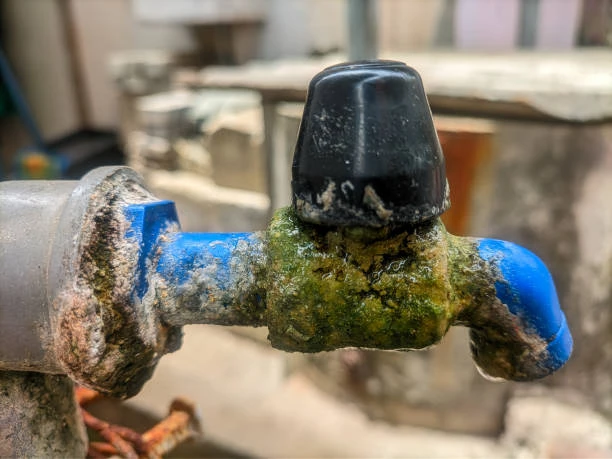Introduction
Water Pipe In a dramatic turn of events, Montreal recently experienced significant disruptions due to a water pipe burst that led to widespread flooding and road closures. This incident not only caused inconvenience for residents and commuters but also raised crucial questions about the state of the city’s water infrastructure. In this article, we will explore the details surrounding the water pipe burst in Montreal, the immediate impact on the community, and the broader implications for urban water management.
Understanding Water Pipe in Urban Infrastructure
What Are Water Pipe?
Water pipes are essential components of urban infrastructure, responsible for transporting potable water to homes, businesses, and public facilities. They are made from various materials, including:
- Ductile Iron: Known for its strength and durability, often used in municipal water supply systems.
- PVC (Polyvinyl Chloride): Lightweight and resistant to corrosion, commonly used in residential plumbing.
- Copper: Valued for its reliability and resistance to bacteria, frequently used in plumbing systems.
- Polyethylene: Increasingly used for its flexibility and resistance to corrosion, especially in new installations.
The Role of Water Pipes in Urban Areas
Water pipes play a critical role in maintaining public health and safety. They ensure access to clean drinking water, sanitation, and fire protection. When these pipes fail, it can lead to severe consequences, including:
- Flooding: A burst pipe can cause significant flooding, damaging property and infrastructure.
- Public Health Risks: Contaminated water can lead to outbreaks of waterborne diseases.
- Economic Impact: Road closures and property damage can result in substantial economic losses for the community.
The Incident in Montreal
What Happened?
On [insert date], a water pipe burst in Montreal, causing widespread flooding in several neighborhoods. The incident occurred during peak hours, leading to significant disruptions in traffic and public transportation. Emergency services were quickly deployed to manage the situation and mitigate the damage.

Immediate Response
Following the water pipe burst, city officials and emergency responders took immediate action to address the crisis. Key steps included:
- Shutting Off Water Supply: Crews swiftly shut off the water supply to the affected area to prevent further flooding.
- Evacuating Affected Areas: Residents in the most impacted areas were advised to evacuate as a precautionary measure.
- Deploying Emergency Services: Firefighters and city workers were dispatched to assist with water removal and assess the damage.
Impact on the Community
The water pipe burst had several immediate impacts on the community, including:
- Flooding of Streets and Properties: Several streets were submerged, leading to property damage and making roads impassable.
- Traffic Disruptions: Major road closures caused significant traffic delays, affecting commuters and public transportation.
- Public Safety Concerns: The flooded areas posed risks for pedestrians and vehicles, leading to concerns about safety.
The Importance of Water Infrastructure Maintenance
Preventing Future Incidents
The incident in Montreal underscores the importance of regular maintenance and monitoring of water infrastructure. Key practices that can help prevent future water pipe failures include:
- Routine Inspections: Regular inspections can identify potential issues before they escalate into significant problems, such as leaks or bursts.
- Upgrading Aging Infrastructure: Many urban water systems are aging and require upgrades to modern materials that offer better durability and resistance to corrosion.
- Emergency Preparedness Plans: Developing comprehensive emergency response plans can help cities respond more effectively to water supply disruptions.
The Role of Technology
Advancements in technology can significantly enhance water management in urban areas. Some technologies that can help include:
- Smart Water Monitoring Systems: These systems can detect leaks and monitor water pressure in real-time, allowing for quicker responses to potential issues.
- Predictive Maintenance Tools: Utilizing data analytics and machine learning, cities can predict when maintenance is needed, preventing failures before they occur.
Broader Implications for Urban Water Pipe Management
Water Quality and Public Health
The quality of water in urban areas is paramount. Contaminated water can pose severe health risks, particularly during incidents like pipe bursts. Cities must implement strict water quality management protocols, including:
- Regular Testing: Routine testing of water quality to ensure it meets health and safety standards.
- Filtration Systems: Installing advanced filtration systems to remove contaminants and ensure safe drinking water for residents.
Regulatory Water Pipe Compliance
Urban water systems are subject to various regulations regarding water quality and safety. Compliance with these regulations is essential to avoid legal issues and ensure public safety. Key regulations include:
- The Safe Drinking Water Act (SDWA): Mandates that public water systems meet specific safety standards.
- Local Health Codes: Many municipalities have specific health codes that urban water systems must adhere to regarding water supply and sanitation.
Community Water Pipe Engagement
The implications of a water pipe burst extend beyond the immediate area. Community engagement is crucial for effective water management. Key strategies include:
- Public Awareness Campaigns: Educating residents about water conservation practices and the importance of reporting leaks or infrastructure issues.
- Involving Local Stakeholders: Engaging community members, businesses, and local organizations in water management discussions can lead to more effective solutions.
Conclusion
The water pipe burst in Montreal serves as a stark reminder of the critical role that water infrastructure plays in urban areas. While the immediate response ensured public safety, the incident highlights the need for ongoing maintenance, technological advancements, and regulatory compliance to prevent similar occurrences in the future. As cities continue to grow and evolve, prioritizing water management will be essential to ensuring the safety and well-being of residents.
Frequently Asked Questions (FAQs)
1. What caused the water pipe burst in Montreal?
The exact cause of the water pipe burst is typically investigated by city officials, but common causes include aging infrastructure, temperature fluctuations, or increased water pressure.
2. How does a water pipe burst affect urban infrastructure?
A water pipe burst can lead to flooding, road closures, property damage, and public health risks, significantly disrupting daily life in the affected areas.
3. What measures can cities take to prevent water pipe failures?
Cities can implement routine inspections, upgrade aging infrastructure, utilize smart monitoring systems, and develop emergency preparedness plans to prevent water pipe failures.
4. How is water quality managed in urban areas?
Water quality is managed through regular testing, the use of filtration systems, and adherence to health regulations to ensure safe drinking water for residents.
5. What regulations govern water quality in urban areas?
Urban water systems must comply with various regulations, including the Safe Drinking Water Act (SDWA) and local health codes, to ensure safe water supply and sanitation practices.


















